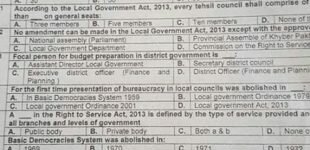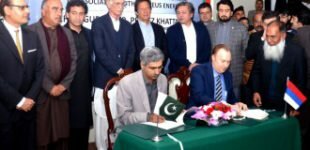Proposal of extending IHC jurisdiction of FATA draws flak
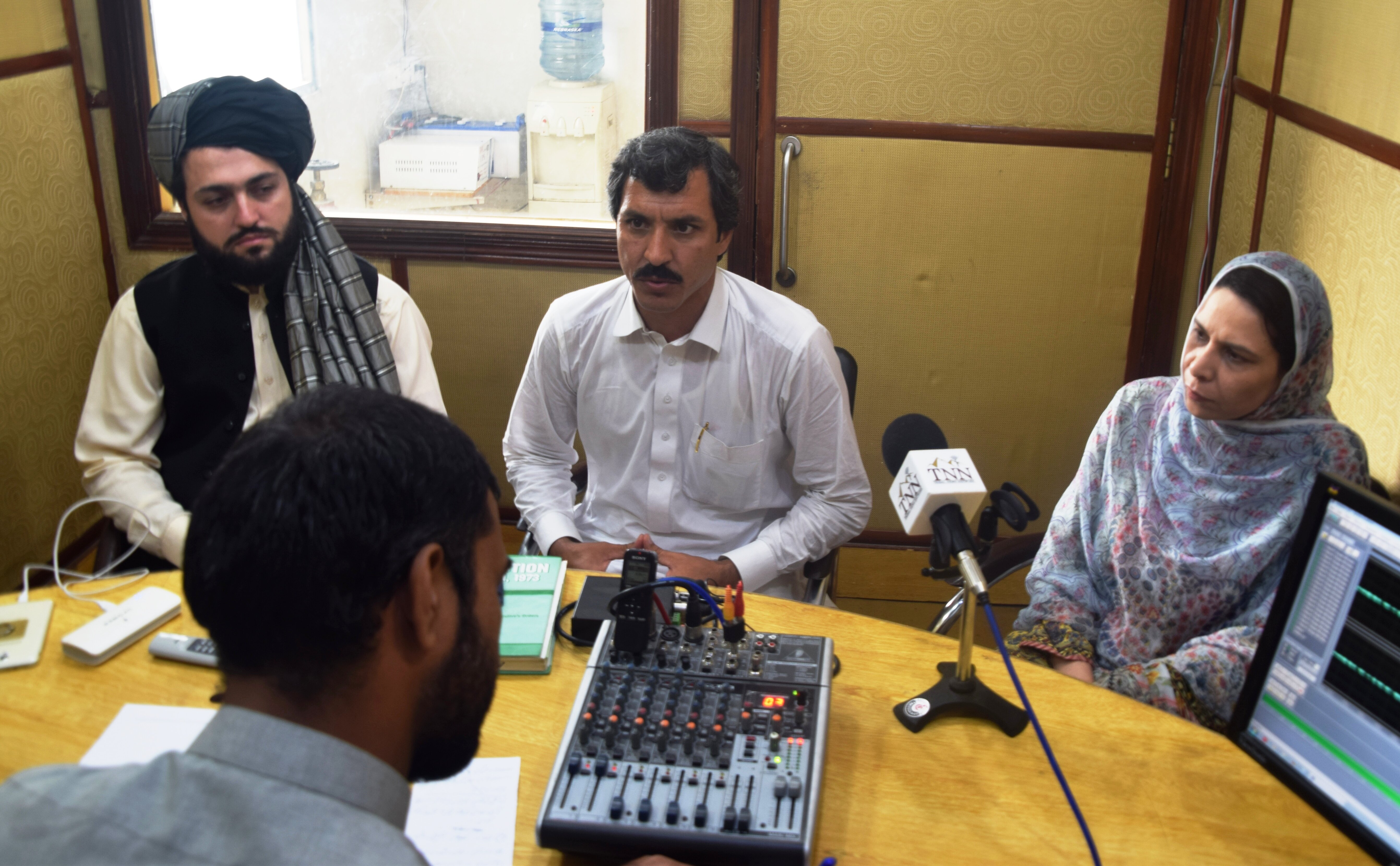
Efforts on national and local level are continuing since September, 2015 for brining administrative reforms in the Federally Administered Tribal Areas (FATA) and abolition of the Frontier Crimes Regulation (FCR) law. However, the reforms process could not be taken to its logical end due to differences among different political parties and groups over the mode of reforms.
The stalled reforms process got a new lease of life when Prime Minister Shahid Khaqan Abbasi resumed work on it in September, 2017. During the federal cabinet meeting on 12 September, a proposal was made to extend the jurisdiction of the Supreme Court of Pakistan and Islamabad High Court (IHC) to FATA. However, the proposal of extension of IHC jurisdiction to FATA despite its proximity with the Peshawar High Court (PHC) got negative response from most of tribal parliamentarians and local and political leaders of FATA and Khyber Pakhtunkhwa. There are few people who are supporting the proposal.
The Awami National Party (ANP) local leader in Bajaur Agency Sheikh Janzada says extension of courts to FATA is a good proposal. However, he said bringing IHC to FATA instead of the PHC shows that the federal government is not sincere in this matter. “The government should bring FATA under the PHC and move forward on the issue with sincerity,” he told TNN.
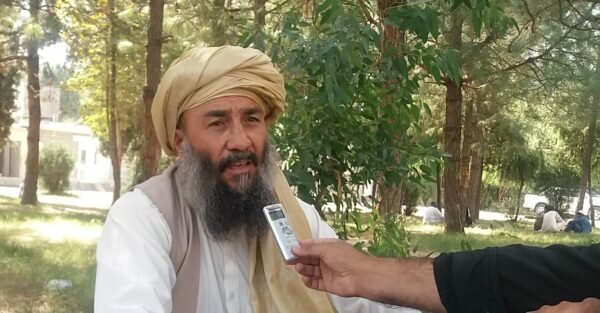
The Jamaat-e-Islami (JI) FATA leader Sardar Khan has also rejected the proposal. “This proposal has been made under a conspiracy to compel the FATA people to seek continuation of FCR.,” he said.
The Jamiat Ulema-e-Islam Samiul Haq group ameer for KP Maulana Yousaf Shah said the problems of FATA people can easily be resolved in the PHC instead of Islamabad. “A final decision has not been taken on the matter as yet. Despite weaknesses in our judicial system, it also has many benefits. People can raise voice for their rights in the court, which is not possible under the existing system of FCR. The PHC is working well in KP and it should also be an acceptable option for FATA,” he told TNN.

On the other hand, the Jamiat Ulema-e-Islam-Fazl (JUI-F) FATA general secretary Mufti Ijaz Shinwari believes that extension of the PHC jurisdiction to FATA will be a step towards merger with KP, therefore, his party supports the proposal of bringing FATA under the IHC jurisdiction. “We support all the proposals of FATA reforms except merger with KP. We will be happy with the extension of the IHC jurisdiction to FATA. The tribal people should be consulted over the proposal before its implementation,” he told TNN.
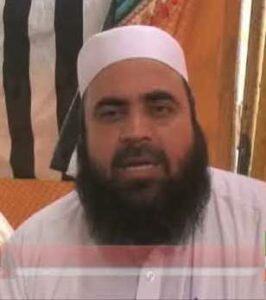
Former MNA from Kurram Agency Munir Khan Orakzai says it is impossible to bring FATA under the IHC jurisdiction. “The option is impracticable because it will need establishment of a circuit bench, new appointments and establishment of new offices. This proposal has been rejected by the FATA lawmakers and it is hoped that FATA will come under the PHC,” he said.

“In case of merger with KP, we will come under the PHC jurisdiction and we will have our own high court if FATA gets the status of a province. If the existing status of FATA remained unchanged then it will come under the IHC jurisdiction,” Muhammad Imran Khan from South Waziristan Agency told TNN.
Kamran from Kurram Agency says: “The government is planning to merge FATA with KP and at the same time it is bringing FATA under the IHC which is unacceptable. It will create many problems. It seems the government is reneging on its promises.”
Naheed Afridi from Khyber Agency says: “I am failing to understand why they are bringing us under the IHC when we are continuously raising our voice for FATA-KP merger.”
Syed Ibne Ali from Upper Orakzai says: “How will the tribal people travel to Islamabad when they can hardly travel to Peshawar. Most people in FATA are poor and they can’t afford travel to Islamabad to pursue their cases.”
Iftikhar Afridi from Bara, Khyber Agency, says: “The lawyers of Islamabad are unaware of tribal culture and traditions. They even don’t know our language. In case of bringing FATA under the IHC, the tribal people will face a lot of trouble.”
Kainat Kamal from Orakzai Agency says: “Literacy rate in FATA is very low and most people can’t speak Urdu. The government should keep these issues in mind before bringing FATA under the IHC jurisdiction.”

Lal Badshah from Mohmand Agency says: “It is a wrong decision that we have been pushed towards the IHC despite having proximity with the PHC. I don’t know what is the problem with the PHC.”
Laila Shahnawaz says it is still unclear what the federal government is intending to do. “Decisions of outsiders should not be imposed on the FATA people. The future of FATA should be decided according to the wishes of the tribal people,” she said.
Rehmat from North Waziristan says: “Our people mainly depend on Peshawar for various tasks. Many lawyers from FATA are also working in Peshawar. Bringing FATA under the PHC jurisdiction will be a genuine decision.”
TNN also conducted a panel discussion with Advocate Farhad Afridi, Kurram Agency’s Dr Noreen Naseer, who is Assistant Professor at Political Science Department of University of Peshawar, and former president of North Waziristan Qaumi Jirga Khalid Ahmed Dawar on the proposal of extension of the IHC jurisdiction to FATA.
TNN (from Farhad Afridi): What is your opinion on bringing FATA under the IHC instead of the PHC?
Farhad Afridi: The new bill proposes extension of the IHC jurisdiction to FATA, which means that the litigants will travel all the way from Waziristan, Bajaur and other tribal areas to Islamabad to pursue their cases. I don’t see any logic behind this proposal. However, the government is empowered under the Constitution to do so.The PHC benches are working in different cities of KP. Bannu bench of the PHC is in proximity with Waziristan, Khyber Agency has easier access to Peshawar, Orakzai and Kurram Agency is situated near Hangu where another bench could be established and Bajaur and Mohmand Agency people can travel to Mingora. These benches of the PHC can be activated immediately. Funds will be required in case of bringing FATA under the IHC which may create problems. In such a scenario, benches will be established in different agencies and new staff will also be appointed which will be a long and difficult exercise. I personally believe that the option of IHC is impracticable. Not a single university could be established in FATA during the last 70 years. Even if the government went ahead with this proposal, the FATA people will come on roads against it.
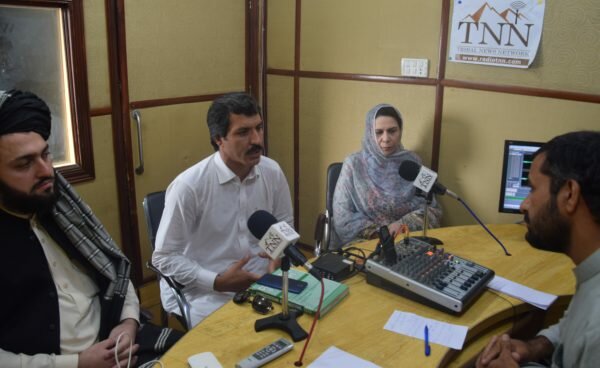
TNN (from Khalid Dawar): Will it be possible for the FATA people to travel to Islamabad for their cases?
Khalid Dawar: It will be very difficult for people from Waziristan and other areas of FATA to travel to Islamabad. The mere travel will not end the story as they will also have to meet lawyers and convince them on their point of view. The government is deliberately floating such impracticable proposals to keep the people of FATA confused.
TNN (from Dr Noreen): Reforms process is continuing and a new proposal about the IHC jurisdiction to FATA has been floated. What is your opinion about this proposal?
Dr Noreen: My tribal sisters get identity cards only when they travel for Hajj let alone travelling to Islamabad for pursuing court cases. Even if the FCR is abolished and judicial system reaches there, what kind of legislation they will make to protect the rights of FATA women? Problems of tribal women cannot be resolved just by extending the High Court jurisdiction to FATA.
TNN (from Farhad Afridi): Will FATA get any women tribunal with the arrival of judicial system?
Farhad Afridi: Eighty percent problems of FATA people will be resolved with the arrival of judicial system as it will enable the people to raise voice for their rights. Basic rights are the same for men and women. It will also enable the women to approach the courts for their rights.
TNN (from Khalid Dawar): How a tribal elder would feel on the first morning after abolition of FCR from FATA and arrival of judicial system?
Khalid Dawar: It would be a great feeling as there will be no burden of collective responsibility on his shoulders. He will have no fear of being arrested for the sin of others. He will go for his work in the morning without any tension like other citizens of Pakistan.
TNN (from Dr Noreen): How would you describe the feelings of tribal women in Kurram or Tirah if the FCR is finally abolished and judicial system is extended to FATA?
Dr Noreen: Tribal women are well aware of the hazards of collective responsibility law. They know very well what happens to their family when male members are arrested for the sins of others. They also know very well how the women are killed in the name of honour and for what reasons. The arrival of judicial system in FATA is bound to bring development in the region. It will also encourage people to send their girls to schools.
TNN (from Farhad Afridi): If we take a sample case, what will be the differences in expenses in the PHC and IHC?
Farhad Afridi: If a litigant hires a lawyer from Peshawar and takes him to Islamabad, it will need more expenses for travelling, stay and food etc. in Islamabad besides the lawyer’s fee. On the other hand, litigation in Peshawar will be cheaper as it will save time, travelling and other expenses of litigants.
TNN (from Khalid Dawar): What will be the scenario if the proposal of extending IHC jurisdiction to FATA takes 10 years like the 10-year development programme for FATA?
Khalid Dawar: I still feel that they are not sincere in the reforms process. Although there is a hope, but they are wasting too much time.
Dr Noreen: The FATA people should get representation in the KP Assembly. The problems of the FATA people will be resolved when their representatives get the powers of legislation and development funds. Local bodies polls should also be held in FATA to resolve basic problems of the people. FATA people should also get choice of resolving their problems through the Riwaj system or judiciary. After getting that choice, you will see that the tribal women will fully utilise the system to get their rights. Development is not possible till introduction of a transparent accountability system. It will be unfair to give the whole fund to a single institution which will spend it in the next 10 years. FATA don’t need foreign funds as international trade of over 3 billion dollars is carried out in the region. The condition of FATA can change if these funds are spent on the tribal areas. The government seems insincere in the matter, but we must not stop our efforts for bringing a positive change. Continuous pressure from the FATA people will ultimately force the government to listen to their demands.
This article has been taken from TNN programme Badloon which highlights political activities and reforms process in FATA. TNN producers Shan Muhammad and Salman Ahmed prepared this programme which was broadcast from five radio stations of FATA and KP.
TNN correspondents Shah Khalid, Gul Muhammad Mohmand, Nabi Jan Orakzai, Anwar Shah, Rizwan Mehsud, Ali Afzal Afzaal, Malik Azmat and Hikmat Shah contributed to this article.






